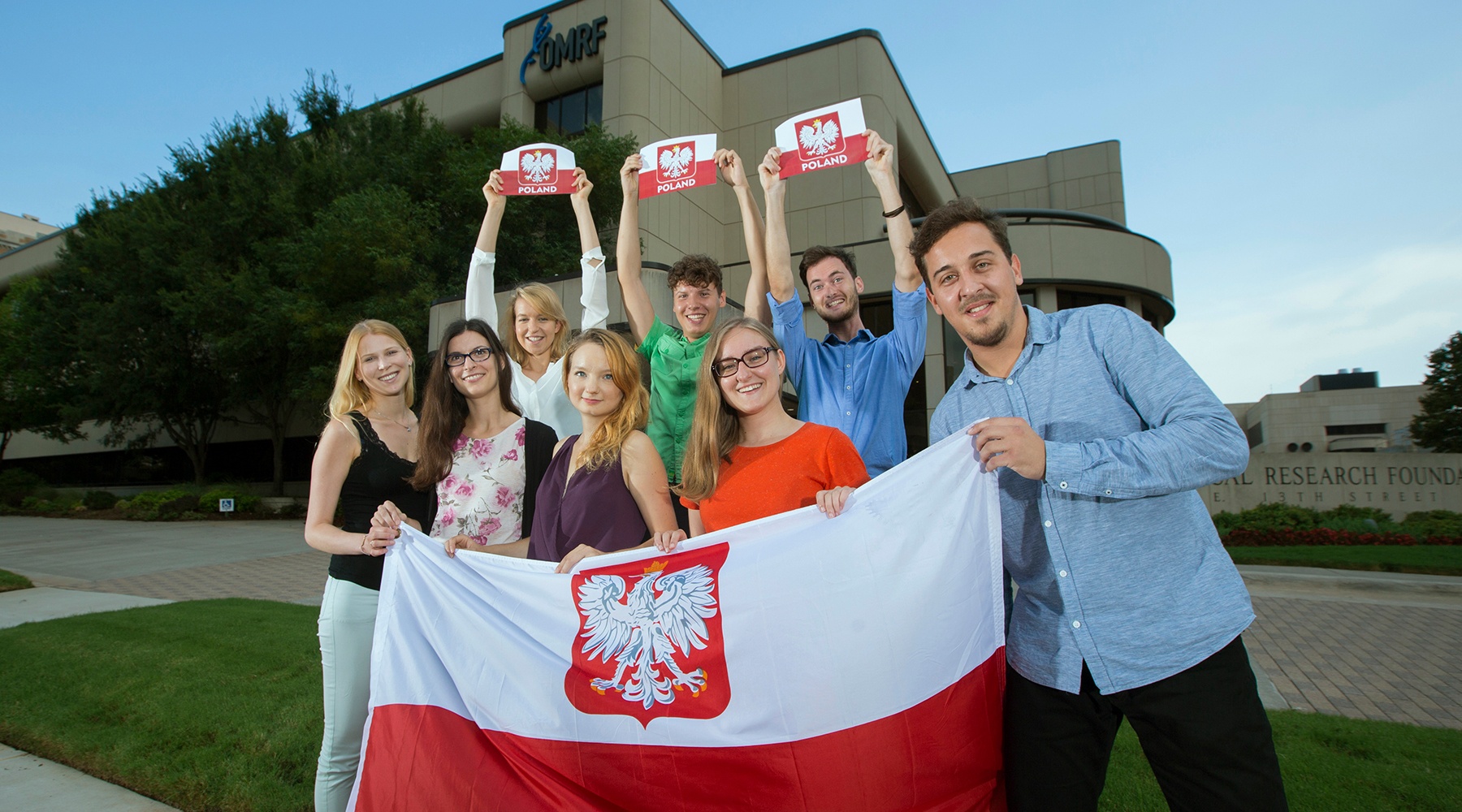When Chip Morgan met the first class of Polish biology students to come to OMRF for a year-long training program in 2013, he couldn’t help but notice something. “They were all women,” says the foundation’s long-time executive vice president and chief operating officer.
The next year, the story was the same. Ditto in 2015. “I began to wonder if they even had male biologists in Poland,” Morgan says.
The answer, it turns out, is yes. Just not many.
For this year’s installment of the program, OMRF’s class consists of five women—and three men. “It’s going to be a slight change for us, but we’re excited,” says Morgan. “Because every class of Polish students we’ve had has been wonderful.”
This marks the fourth year OMRF has served as a host institution for the Visiting Research Graduate Traineeship Program. The initiative offers Poland’s leading master’s degree candidates in biology the chance to come to the U.S. for 12 months of hands-on research training. Program participation is selective, with almost 100 Polish graduate students applying for a total of roughly 30 slots available at OMRF and three U.S. universities.
The program came to OMRF with the arrival of Dr. Umesh Deshmukh, who joined the foundation’s faculty from the University of Virginia in 2013. At Virginia, the immunologist had mentored students through the program, and he saw it as a perfect fit for his new scientific home in Oklahoma City.
“It’s been a great addition to OMRF because it brings young, energetic students to our labs,” says Deshmukh. “We’ve been happy with our trainees and plan to continue to look in that direction for top-level scientific talent.”
In the lab, the Polish students conduct in-depth medical research projects that range from studying the biological effects of aging to the development of blood vessels to bioinformatics. All are paired with individual OMRF scientist mentors, who supervise the students as they complete their research projects.
Trainees review a description of possible laboratory assignments and submit a priority list for placement based on their scientific interests. Natalia Stec put the lab of OMRF’s Dr. Ken Miller at the top of her list—and was ecstatic when Miller chose her to come to his lab for 2016-17.
“My lab is a perfect fit for me,” says Stec. “We study nerve cells in a roundworm called C. elegans. I’m a basic science person, and this is exactly the kind of work I wanted to do.”
When not busy at OMRF, the students live in an apartment complex north of the foundation. The first class purchased a 2002 Ford Taurus to get to work and around Oklahoma City. Each year, the new students have pooled funds to buy the car from the previous year’s class. With the help of a few communal bikes and the always-packed Taurus, the students make sure they get to their labs on time.
Following their stints at OMRF, the students return to Poland to complete their degrees. Most plan to continue their education to earn their doctorates. In the past, a few have applied to the University of Oklahoma for Ph.D. programs. “And that is one of our aims,” Deshmukh says, “to bring international talent to Oklahoma, expose them to top-notch science, and get them excited about continuing their research.”
Deshmukh is pleased with the program’s results: high-quality research at OMRF and valuable mentoring for the aspiring biologists. “We hope this program will encourage other well-trained, talented students from all over the world to consider coming to Oklahoma,” he says. “We are excited to see it continue to grow and flourish.”
And the prevalence of women? Deshmukh doesn’t expect that to change any time soon. In Poland, he says, male science students tend to favor careers in engineering, while women gravitate toward biology. Talk about natural selection.



